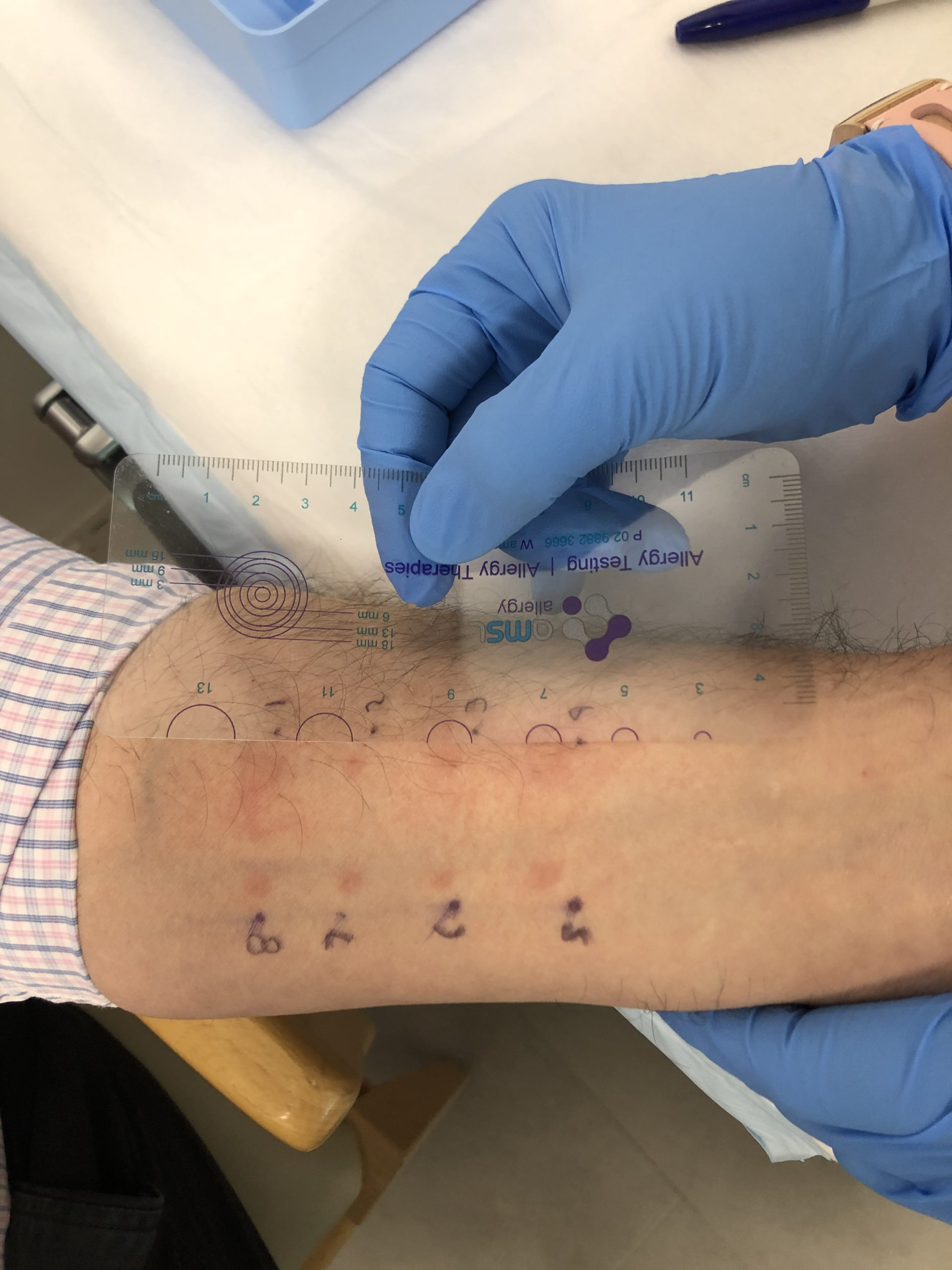Allergy (Airborne) Services & Skin prick testing
Please note that SCENT only tests for airborne allergens such as dust, mould, animal dander and grasses and pollens. We do NOT provide investigation of digested/ swallowed allergens (eg peanut).
Allergic rhinitis, sometimes referred to as “hayfever” is a very common condition affecting many Australians, particularly in childhood and early adulthood.
What are the symptoms of allergic rhinitis?
- Sneezing, itchy nose, sniffing, rubbing nose.
- Clear rhinorrhoea (free discharge of a thin nasal mucus fluid).
- Nasal obstruction/congestion (e.g. nasal speech, mouth breathing, snoring).
- Itchy throat, or frequent need to clear the throat.
How can Skin Prick Testing help?
According to the ASCIA (Australasian Society of Clinical Immunology and Allergy), Skin Prick Testing is considered the gold standard for allergy testing. It has a degree of accuracy for the diagnosis of allergic sensitivities and is well tolerated, carries low risk and delivers rapid results.
At SCENT we have carefully selected the 14 allergens that are responsible for 99% of allergic nasal symptoms in Australia. In addition to the skin prick test, we will provide comprehensive advice about management, tailored to your individual results.

How is Skin Prick Testing performed?
A tiny break in the skin is made (usually on the forearm) with a plastic device which has been dipped into an allergen solution. The skin is then closely observed by a nurse and/or doctor for 15 minutes for signs of a reaction. The reaction is typically itchy and makes a red and/or white bump appear for a short time. Allergy testing causes only minor discomfort and can be administered to both adults and children over the age of 5 years.
Local itch and swelling normally subside within one to two hours. More prolonged or severe swelling is uncommon and may be treated with a non-sedating antihistamine, a painkiller tablet and/or a cool compress. Rarely people may feel dizzy or light-headed and need to lie down. Severe allergic reactions from allergy testing for asthma or allergic rhinitis (hay fever), are very rare.
What allergens do we test for?
At SCENT, we generally test for the following airborne/inhaled allergens:
- Dust mites: Dermatophagoides pteronyssinus, Dermatophagoides farinae
- Animal dander: Cat hair, Dog epithelia, Cockroach Mix (American and German)
- Grass pollens: Bahia Grass, Grass Mix 7 (Kentucky blue, meadow fescue, orchard, perennial ryegrass, redtop/Bent, sweet vernal, Timothy)
- Tree pollens: Birch Tree, Plane tree (sycamore)
- Weed pollen: Plantain
- Moulds: Alternaria alternata, Aspergillus fumigatus, Penicillium chrysogenum, Cladosporium sphaerospermum
Based on your results, your doctor will be able to discuss an individually tailored treatment plan with you.
Please note we do NOT test for food or other allergens – only airborne allergens.
Is there any preparation necessary?
Antihistamine tablets, syrups or medications with antihistamine-like actions (such as some cold remedies and antidepressants and all nasal sprays) should not be taken for 72 hours before testing, as these will interfere with the results.
We also advise to avoid creams and moisturisers on your forearms or back on the day of the test, to reduce the likelihood that allergen extracts will run into each other.
What is the cost for the testing?
The cost is $180, payable on the day of the test. This includes a 30 minute appointment where our qualified nurses administer the test (using the allergens listed above). The nurse will provide you with information about your results and management options.
NB. A medicare rebate applies with a valid referral.
For more information, please speak with your attending doctor, or our nursing staff at SCENT.
